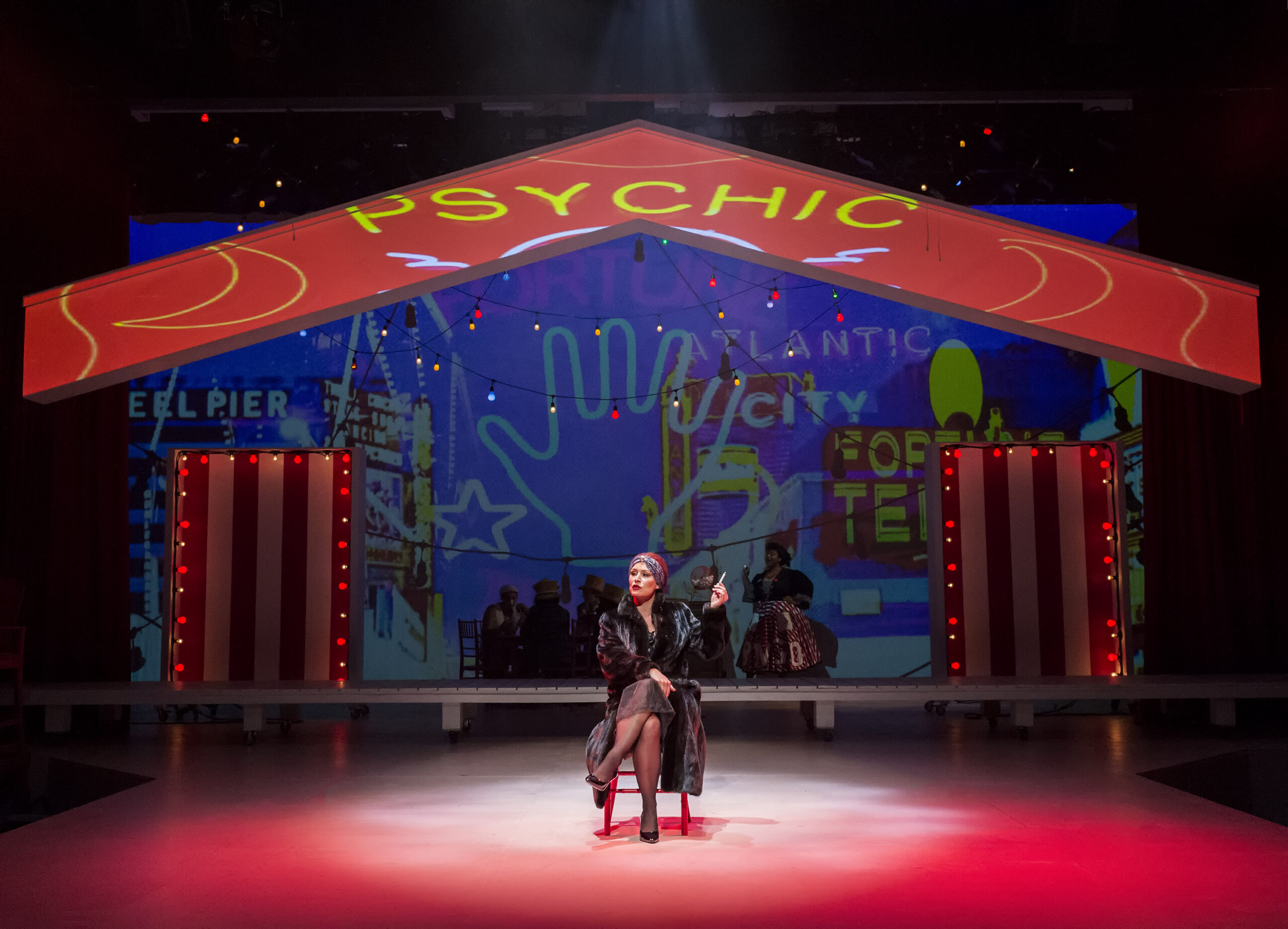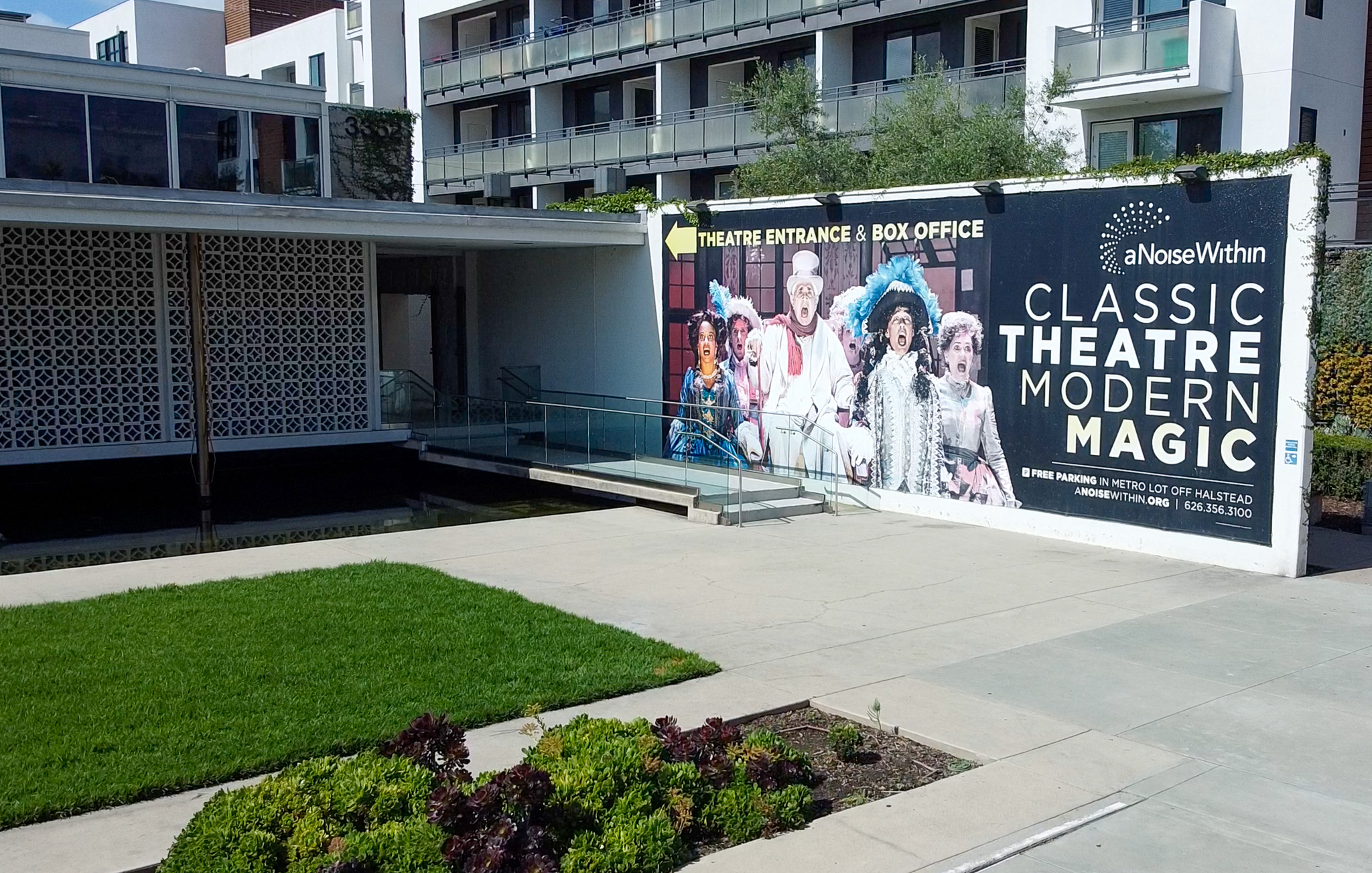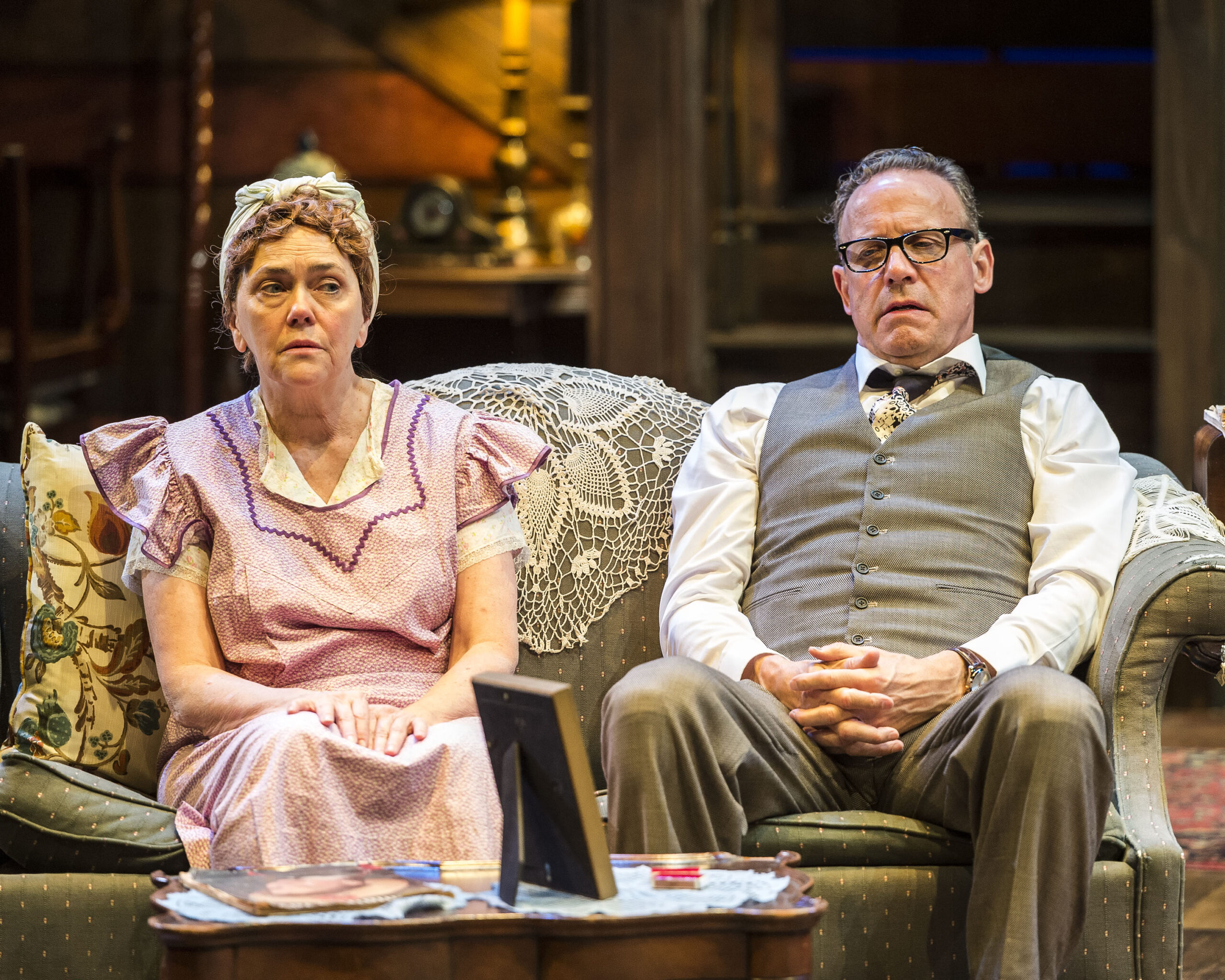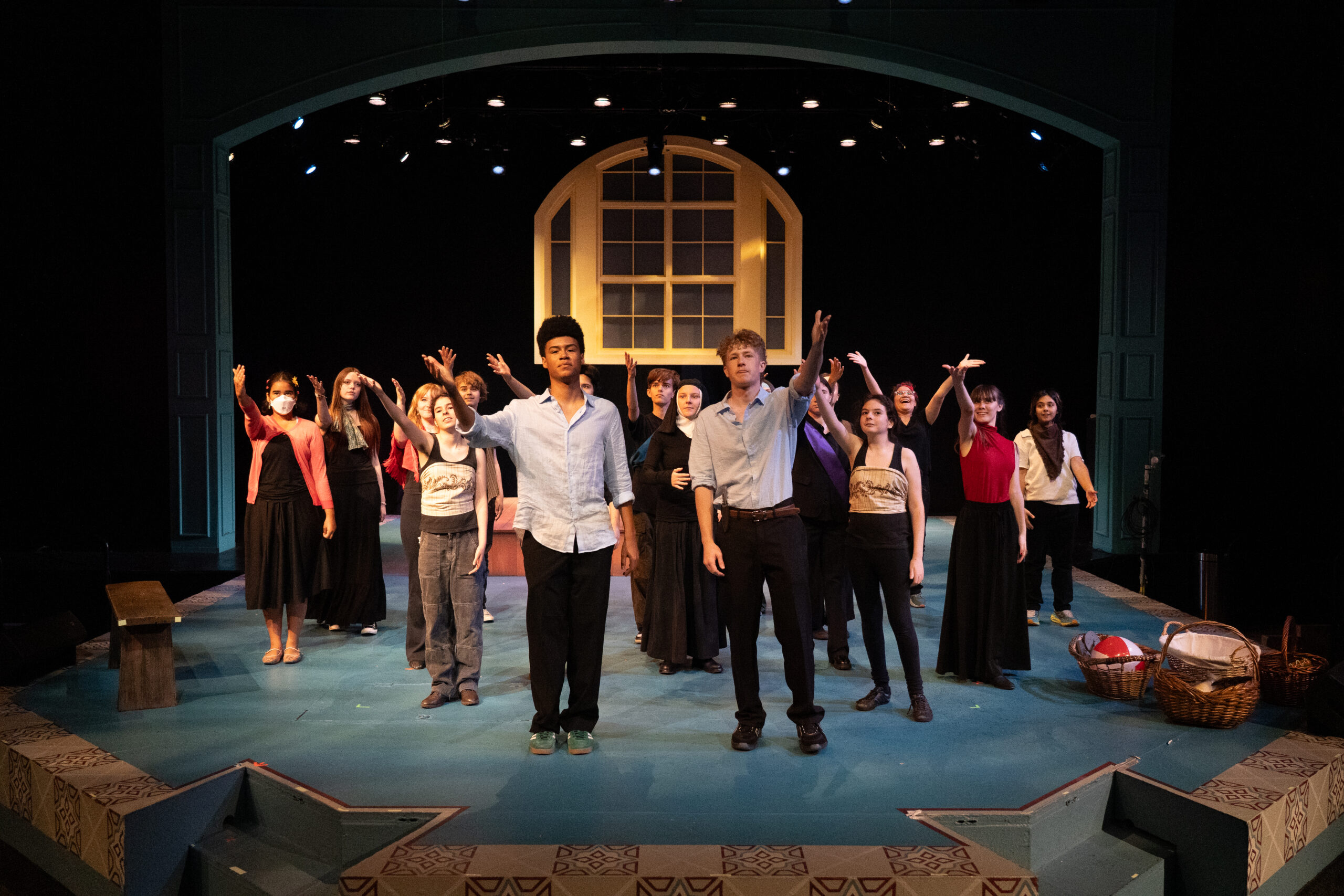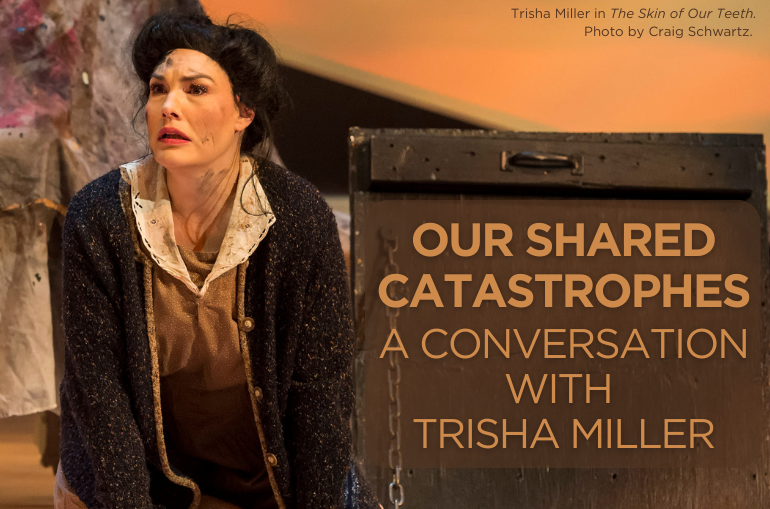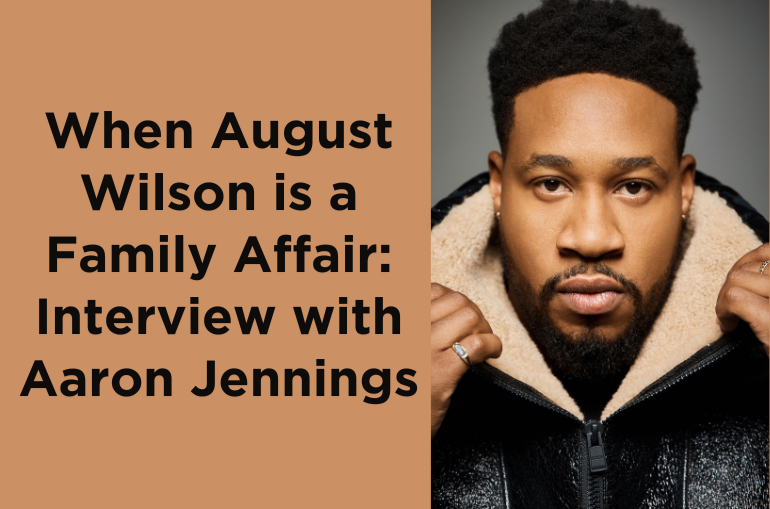All My Sons: An American Family in Full View
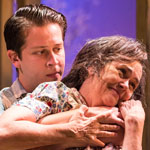
By A Noise Within
July 20, 2015
“Guilty as charged,” admits co-artistic director Geoff Elliott. “I’m ashamed to say that, like so many people, my familiarity with Arthur Miller began and ended with his most-produced plays, Death of a Salesman and The Crucible, even through my days at ACT.”
“It wasn’t until 1994,” he says, “when Julia and I were looking at including a Miller play in our season, that this play first came to our attention—and to say it hit me like a ton of bricks would be an understatement.”
“While many critics talk about All My Sons as Miller’s ‘first great early play,’ I think you can easily take the word ‘early’ out of this epithet: this is a great American play, period. The author’s genius lies in his ability to create a story that has such universal themes that it ends up being prophetic. You know, when you read or see this play, that this author is a force to be reckoned with. All My Sons is really about all of us; anyone who has ever had a family will see themselves or ones they’ve loved on stage.”
Why, then, does the play live in the shadows of Mlller’s other work? “I think that’s always bound to happen when a writer produces as many towering plays as Miller has,” Geoff believes, “as opposed to some authors who are known for one major work.” (Geoff cites Who’s Afraid of Virginia Woolf? by Edward Albee—whom he actually met—as a prime example. “By his own admission, Albee knew, when he wrote this play at 26, that he would never equal its force again.”) While the equal of any of Miller’s plays, Geoff says, “in contrast with Death of a Salesman, All My Sons is a quiet play—a domestic drama. Yet, because of its naturalistic tone, it lays its themes bare, without the expressionism of Death or the allegory of The Crucible. And since the characters are presented in a slice-of-life, natural way, we feel we know them—and their lives and motives—almost as soon as they appear on stage. Miller doesn’t want to be coy or present a guessing game: we know where he and the characters stand.”
The play is especially timely, Geoff says, because “it makes us consider these questions: What responsibilities do we owe each other, and what do we owe to society at large? Where does our personal identity begin and end?” Moreover, he believes, “The theme of self-obsession vs. generosity is always timely; it will never go away for us as human beings. Read the news, and examples are inescapable: we learn how CEOs manipulate the books to pay themselves, or how crooked military contracts or a tyrannical family can suck the life force out of people for their own self-aggrandizement—and sometimes, self-preservation. ‘What and whom are we responsible for?’ is a never-ending question, and is one that all of us grapple over on a daily basis. And we do so in the present tense—‘Am I being selfish right now?’—as well, if we’re thinking people, as how our actions may affect others in the future.”
Geoff also thinks audiences will feel great empathy for the characters. “It’s amazing,” he says, “how full a range of human archetypes Miller presents in a fairly limited number of players. But above all, this is Chris’s story; all the action swirls around him. Chris lives in a world in which he knows there are secrets, drawers he doesn’t dare pry open; but essentially, he has blinders on. Chris sees the best in people, which is a reaction to something—I don’t want to give the plot away here—something he knows is lurking but can’t bear to look at. At end of play he is forced to look at it, but it destroys him. It also forces us, the audience, to consider these same questions—really important ones, such as: ‘Is denial sometimes a valid response—does it cause less harm in the short run?’ There are no easy answers, but this is what makes it a great play. Miller allows many troubling aspects of our daily existence to surface with All My Sons, and this is what makes it part of the canon of great American plays—world plays, really.”
There’s another reason that this play is exceptionally topical, Geoff believes: “No theme is more predominant in this play than the power of denial. Remember, this play is firmly set in a very specific time—the late 1940s. It was a great time in the annals of Americana, a time of great growth and boundless optimism. Yet even in the rosiest of times, secrets may lurk. It’s easy to become immersed in self-satisfaction and denial—think here of politicians who refuse to acknowledge that there are still millions of under- or unemployed Americans—but Miller is very clear on one point: past actions can come back to haunt you.
This all said,” Geoff smiles, “I wouldn’t want anyone to think this is a ‘depressing’ play; it’s actually very life-affirming in many ways. Ultimately, its message is anti-tribe: we are all swimming in the same sea and have a responsibility to each other and to love and take care of each other. We neglect that responsibility at our peril. It’s a cautionary tale but a soaringly poetic one—and that is the essence of Miller’s art. Chris’s experience in the play is absolutely transformative. All My Sons is a play about coming out at the other end and realizing how precious life is, and that’s a very beautiful thing.
Before leaving the interview to attend a design meeting, Geoff wants us to know that “This play is also about young love, and deep familial love. These are people who will sacrifice anything and everything to take care of their family and the ones who are precious to them. In the same vein, this is very much an ensemble piece, one that’s driven by performance, and it couldn’t be delivered without a magnificent company of actors, many of whom have been together for 20 years. This is among the most personally meaningful plays I have ever directed, and All My Sons is a wonderful introduction both to Arthur Miller and the work we do here at A Noise Within.”

